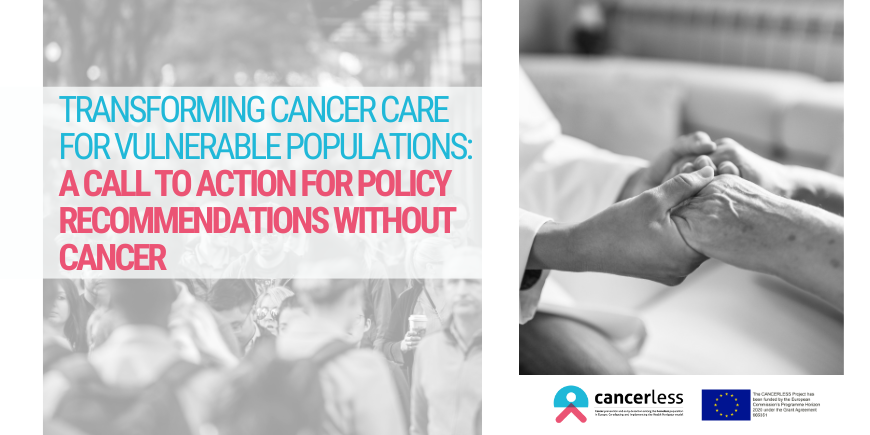In the public health policy arena, transformative change is underway to address the health care disparities faced by vulnerable populations, particularly people experiencing homelessness (PEH). The urgent call to action outlined in recent policy recommendations highlights key pathways for policy, service and societal changes to improve the accessibility and quality of cancer care for marginalised people.
At the heart of the policy recommendations is the drive to integrate the social, economic and health sectors for sustainable and holistic benefits. By fostering collaboration among stakeholders, policymakers can create a more inclusive health system that addresses the specific needs of vulnerable populations.
As part of the results of the CANCERLESS project, it has been concluded that there is an overriding need to improve access to health care for marginalised people, for which tailored services and support mechanisms play a crucial role. By championing the role of health navigators and scaling up tailored health services, policy makers can ensure equitable access to essential health services for all.
In terms of community engagement and communication, effective communication strategies and community involvement are essential to improve cancer care outcomes in vulnerable populations. Longitudinal health interventions and multidisciplinary approaches to cancer prevention can build trust and foster inclusion in health care delivery, thereby reducing disparities in health care.
To bring about the necessary changes and improvements in the health system in terms of health care and prevention, a focus on collaborative policy development is needed. Collaboration between stakeholders at all levels is key to developing comprehensive policies that address the health and social needs of vulnerable populations. By sharing best practices and fostering collaboration, policymakers can drive systemic change and improve health care outcomes for marginalised communities.
As we move into the complexities of health care for vulnerable populations, attention to policy innovations offers an avenue for enhancing equity in health care. By adopting collaborative approaches and inclusive policies, we can work towards a future where all people have equal access to quality cancer care. Let us champion these policy innovations and fight for a more equitable and compassionate healthcare system for all.

